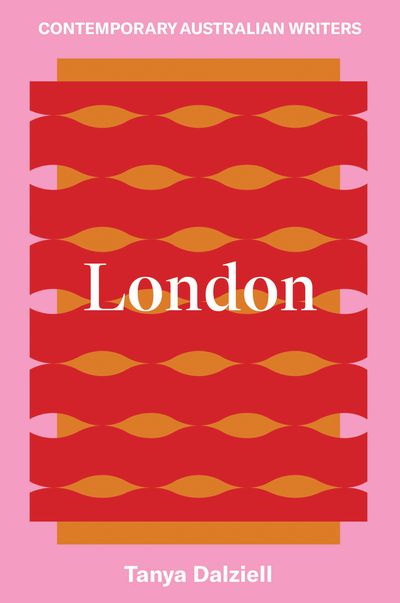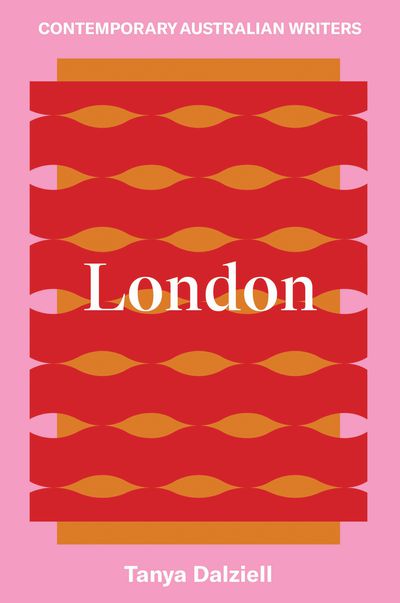Tanya Dalziell
London
London
Couldn't load pickup availability
Peta's Review
Tanya Dalziell is Professor of English and the current Chair of English and Cultural Studies at the University of Western Australia. She has written or co-authored several books on a range of subjects. Her first book, Settler Romances and the Australian Girl (2005), was awarded the Walter McCrae Russell Award. She and Karen Welberry edited the book Cultural Seeds: Essays on the Work of Nick Cave (2009). Along with Paul Genoni, Tanya co-authored the marvellous Half the Perfect World: Writers, Dreamers and Drifts on Hydra, 1955-1964; in 2019 it was the recipient of the Prime Minister’s Literary Award for Non-Fiction. The book is an extensively researched, beautifully written and illustrated account of the Australian literary couple Charmian Clift and George Johnston, who established the fabled artistic colony on the Greek island of Hydra from 1955 to 1964. The book is currently being made into a feature film. In 2020 Tanya published Gail Jones: Word, Image, Ethics, a detailed exploration of Jones’ novels and her contribution to Australian literature. Tanya is also the author of over 50 academic essays. Her latest book is simply titled London. No, not the city London, but the Western Australian author Joan London.
Joan London is a highly acclaimed and much-loved short story writer and novelist. Her first short story collection, Sister Ships, won the 1986 Age Book of the Year, while her second collection, Letter to Constantine, won the 1994 Steele Rudd Award and the West Australian Premier’s Award for Fiction. These two collections, along with a previously unpublished story, have more recently been released in a volume called The New Dark Age. London’s first novel Gilgamesh (2001) won the Age Book of the Year, while her second, The Good Parents (2008) won the Christina Stead prize for Fiction. Her third novel The Golden Age (2014) won the Prime Minister’s Literary Award for Fiction, the Kibble Literary Award, the Western Australian Premier’s Award for Fiction and the Queensland Literary Award for Fiction. In 2015 London was awarded the prestigious Patrick White Literary Award for her ongoing contribution to Australian literature.
In her book London, Tanya Dalziell carefully examines London’s literary career, explores each of her works and demonstrates why London is such a literary treasure, not only for her contribution to Australian writing and culture but to Australian women’s writing in particular. She believes that one of the strengths of London’s work, and the reason for its wide appeal, is her focus on relationships in their various contexts – intimate, familial, cultural, historical. London was an admirer of Anton Chekhov’s narrative focus on the familiar; the small things which happen to us and have both a profound and subtle effect on our lives. Tanya concludes the book with London herself taking the stage: a transcript of her speech given in 1987 to the Warana Writers’ Week entitled Why I Write What I Write, and her address at the 2004 Adelaide Writers’ Festival, which speaks to her first novel Gilgamesh.
Joan London is for me without a doubt a literary treasure. I have read and loved all her short stories and novels and had the privilege of teaching Gilgamesh for many years at UWA. It is a wonderful novel; one I have reread many times. If you admire London’s work too, do come along to my conversation with Tanya Dalziell at the Lane Bookshop in Claremont, on Tuesday 1st October, at 6pm.
Publisher's Review
A revealing portrait of Joan London's intimate writings about family, love and loss.
Joan London's remarkable body of work, including the award-winning novels and short fiction The Golden Age, Gilgamesh and Sister Ships, tells everyday stories of family, love and loss, with her signature poetic vision. London's stories portray how ordinary people get caught up in extraordinary circumstances and come to live in a world of violence and fear, of beauty and hope.
In London Tanya Dalziell takes the reader through the literary career of the Western Australian living treasure, journeying through space and time to offer a unique insight into the development of Australian literature and women's writing across the past four decades.
London engages deeply with Joan London's work to reflect on its artistry and the conversations it provokes with the changing times. Dalziell invites readers to traverse London's writing and discover the significant contributions she has made to the contemporary literary landscape.
Share


